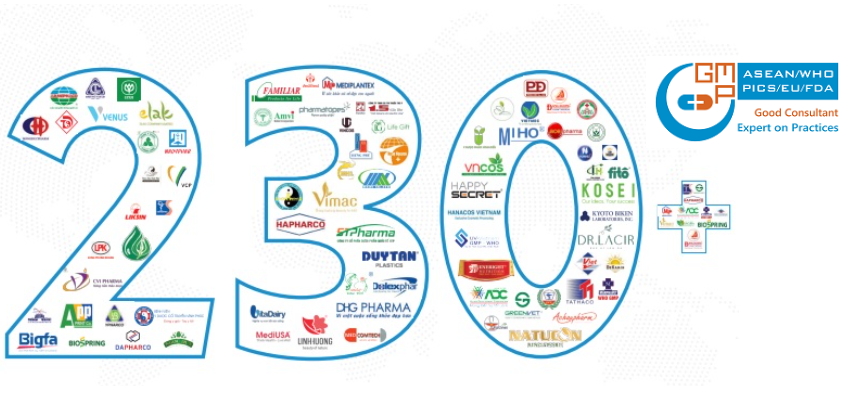.png)
Personal protecting precautions (Clothing), Food and beverages, Signs and labels, Setting up an active radioactive working area, Cancer treatment etc.
Storage Conditions
In addition to well-closed containers and storage areas designated for this purpose, radiopharmaceuticals should be stored in well-ventilated areas. Stored materials should be stored in a manner that will reduce the maximum radiation dose rate to which a person is exposed to an acceptable level. Ionizing radiation protection should be done by national regulations. The contents of a radiopharmaceutical preparation intended for parenteral administration should be protected in a transparent glass vial, ampoule, or syringe that can be viewed visually. Glass containers can darken if exposed to radiation. The effects of radiation on glass containers can cause them to darken.
Precautions
Personal protecting precautions (Clothing)
Required PPE - Protect yourself open radioactive sources by wearing:
* rubber gloves or nitrile gloves (latex gloves are normally suitable). Make sure that they are disposable.
* Closing the lab coat with the sleeves rolled up (worn closed)
* shoes with closed toes. Working with radioactivity should never be done in open-toed shoes or sandals.
*Safety glasses * Any procedure that includes radioisotopes should be conducted with safety glasses, but wearing safety glasses is particularly important if pressure is likely to build up and spill.
*Protecting your wrist - *A lab coat's cuffs may drag over contaminated surfaces if they hang down. If you want to protect your wrists, choose one of the following methods:
* Make sure the cuffs of your lab coat do not drag by wrapping tape or using a rubber band.
* Your lab coat should be tucked into your long gloves.
* Protect your sleeves with Tyvek. Keep your wrists checked frequently
while you're working.
*Contaminated lab coats - *You can find information about how to handle contaminated lab coats under Spills & Incidents.
*Extra clothing -* Keeping a second set of clothes and shoes in the lab is a good idea in case your clothing becomes contaminated.
*Petroleum-based hand creams -* Wear gloves when using hand creams that do not contain petroleum, since petroleum can increase glove permeability.
Food and beverages
*Caution: Radioactive Materials -* A room that contains a sign that warns against consuming food or drinking should not be accessed for either purpose.
*No storage -* Refrigerators, freezers, and cold rooms containing radioactive materials should never be used to store food, beverages, or medicines.
*Storing food items on the desk should also be avoided -* The foods, water bottles, drinks, medicines, coffee mugs, eating utensils, etc. that you use in a radioisotope use lab must be kept inside of your closed desk, but outside of your closed desk you cannot have them.
Signs and labels
*Labeling of the room -* Radioactive material warning signs are posted in radioisotope use rooms. Please contact EHS to request that a room that uses or stores radioactive materials be labeled.
*Container equipment labeling -* Radioactive tape should be applied to any container containing radioactive material, any piece of equipment containing radioactive material as well as any area or item contaminated with radioactive material, regardless of the level of radioactivity. Labeling contaminated items and containers of radioactive materials is an important tool for contamination control as well as a gesture of goodwill towards other laboratory personnel.
It is the responsibility of each lab to keep a supply of radioactive material tape on hand. If your department keeps a supply, it may be kept in its stockroom.
Setting up an active radioactive working area
*Absorbent paper - *To prevent contamination of the work surface, cover it with absorbent and protective bench paper. The use of smaller pieces on top of the large piece is especially convenient when the entire work area is covered. When a small portion of a covering becomes contaminated, replacing it is easier than replacing the entire covering.
*Dedicated equipment -* Work with radioactive materials should be done in an area equipped with specialized equipment. In addition to pipettors, a microcentrifuge, mixers, timers, and a water bath, these may be included in your protocol.

GMPc Vietnam is recognized throughout Vietnam as the leader in providing turnkey consulting solutions for GMP-certified facility projects, including Pharmaceuticals, Cosmetics, Health supplements and Veterinary pharmaceutical. Though 12 years of development 2011 to 2023, GMPc has implemented more than 230 GMP-certified facility projects, equaling to more than 80% of market share of the field in Vietnam. Not only do domestic customers, foreign investors also choose GMPc as their consultant when investing new factories in Vietnam, such as Kyoto Biken Vaccine Factory, Nippon Chemiphar Pharmaceutical Factory, Shimizu Contractor, Kajima Contractor, etc.
Consulting services for EU GMP
Consulting services by GMPc Vietnam
GMP project consulted by GMPc Vietnam


